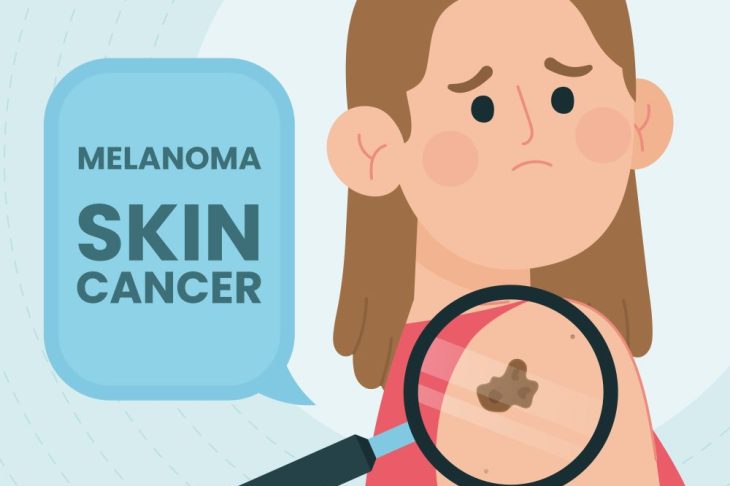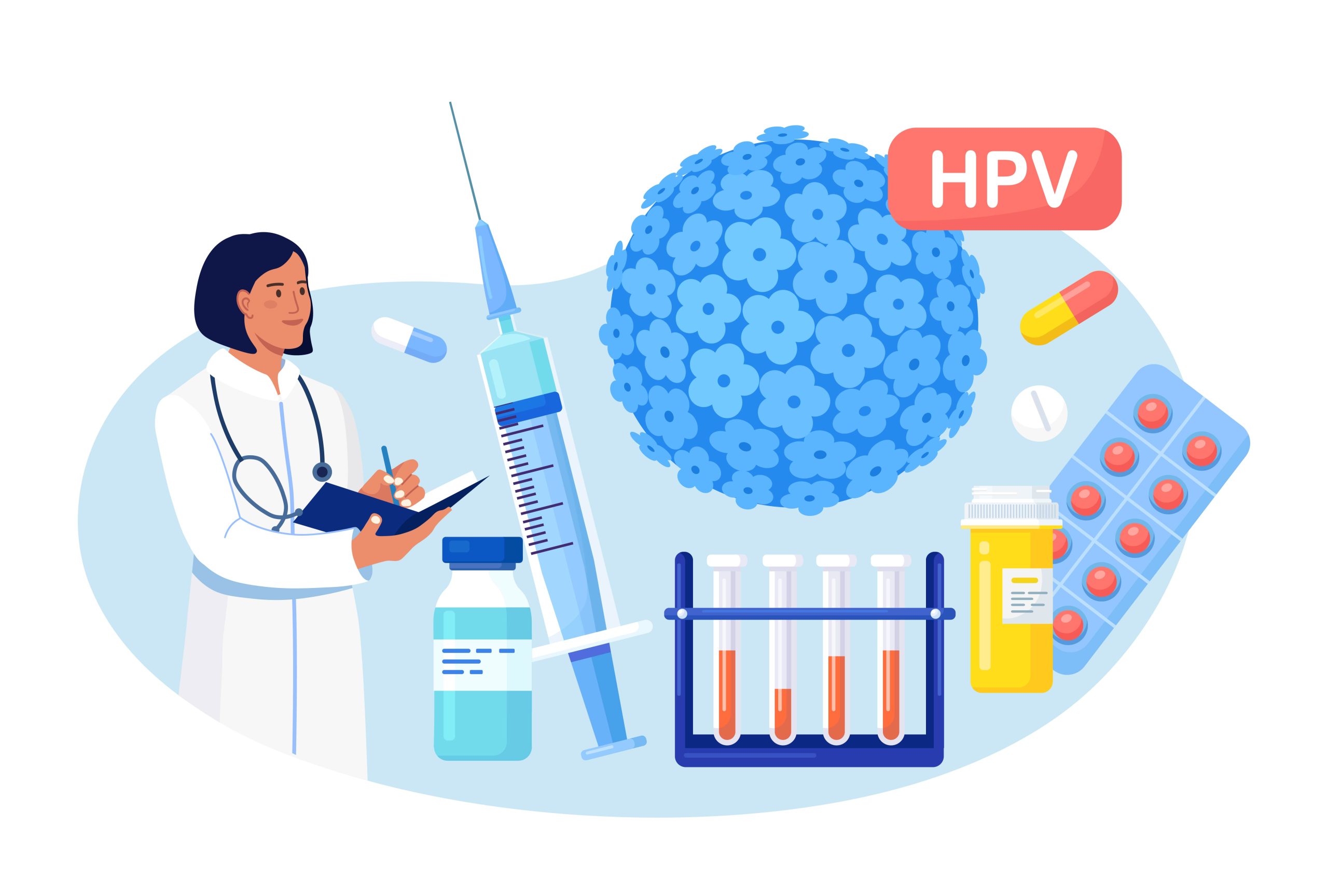
10 Important Points You Should Know About Human Papillomavirus (HPV)
Human papillomavirus (HPV): The HPV is a common contagious virus capable of causing cancer. Many HPV infections resolve on their own, but some can cause major health issues, such as cervical cancer and other cancers in both men and women. The HPV virus does not show any symptoms, but it is very easy to pass on. That means an infected person can accidentally infect someone else.
1. HPV is Very Common
HPV is one of the sexually transmitted infections (STIs). This infection is so common that practically everyone who engages in sexual activity will eventually come into contact with at least one form of the virus. The HPV virus can be transmitted through skin-to-skin contact and not just sexual intercourse, making it easier to spread than many other STIs. More than 200 viruses are members of the HPV group, some of which are transmitted during oral, anal, or vaginal sex. Low risk and high risk are the two categories of sexually transmitted HPV types. Due to the high prevalence of HPV, vaccination offers an essential line of defence, significantly lowering the chance of acquiring associated cancers in later life.
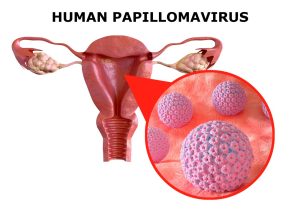
2. HPV symptoms
The HPV symptoms depend on the site of infection and its severity. Since the majority of HPV cases are asymptomatic, there will be no noticeable signs or symptoms. For people who do have symptoms, they may include:
- Genital warts
- Cervical dysplasia
- Cervical cancer
It is essential to note that an HPV strain causes all types of warts on the body. Usually, the body can fight it off. However, a strain of HPV that causes genital warts or is present on the cervix can cause complications. In case of one of the above conditions, the doctor will also check for HPV infection.
3. HPV diagnosis
HPV is often diagnosed through routine screenings such as a Pap smear or HPV DNA test, which can detect the presence of the virus in women before symptoms appear. For men, HPV diagnosis is less straightforward, as no approved test exists. However, visible signs like genital warts or changes in the skin of the genital area may indicate infection. Regular cancer screenings are vital for early detection, especially in women, to prevent the development of cervical cancer and other HPV-related cancers. Early diagnosis allows for timely treatment and management, helping reduce the risk of severe complications.
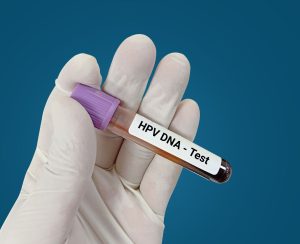
4. HPV Statistics
There are 511.4 million women in India who are 15 years of age or older and at risk for cervical cancer. According to current figures, 77348 women die from cervical cancer each year, while 123907 women receive a diagnosis. In India, cervical cancer is the second most common cancer in women and the second most common cancer in women aged 15 to 44. It is estimated that 5.0% of women in the general population are infected with cervical HPV-16/18 at the given time, and HPVs 16 or 18 are responsible for 83.2% of invasive cervical malignancies.
Reference: https://hpvcentre.net/statistics/reports/IND_FS.pdf
5. HPV Vaccination Can Prevent Cancer
One of the most compelling reasons to get HPV vaccination is its proven ability to prevent cancer. Certain strains of HPV, particularly HPV types 16 and 18, cause the majority of cervical cancer cases. This virus can also cause cancers of the vulva, vagina, penis, anus, and oropharynx. HPV vaccination targets the most dangerous HPV strains and can prevent these types of cancer from developing.
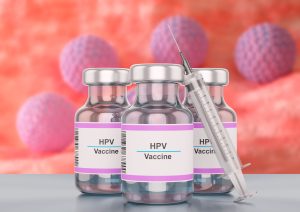
6. HPV Vaccination is Most Effective When Given at a Young Age
The right time to get the HPV vaccine is before a person becomes sexually active. It is recommended to start the vaccine series at age 11 or 12 for both boys and girls, although it can be administered as early as age 9. The HPV vaccine is most effective when given to individuals who have never been exposed to HPV infection. Preteens who receive the vaccination will have a stronger immune system, which will provide optimal protection before they are exposed to the HPV virus.
7. HPV Vaccination is Safe and Well-Studied
The HPV vaccine effectively and safely prevents infections and malignancies linked to HPV. Like all medications, vaccines can cause adverse effects. Many HPV vaccine recipients experience absolutely no negative effects. Mild side effects, such as a painful arm from the injection, are typically the most frequent.
8. Both Boys and Girls Should Get the HPV Vaccine
Men and women can contract HPV, which can cause genital warts and other malignancies, even though it is frequently linked to cervical cancer. Boys can also have anus, penis, and throat cancers, and they are susceptible to catching and spreading HPV infections. In addition to protecting boys against HPV-related illnesses, vaccinations also help slow the virus’s general population spread.
9. The HPV Vaccine Has Long-Lasting Protection
Studies have shown that the protection provided by the HPV vaccine lasts for many years, with current data showing strong protection for at least 10 to 12 years after vaccination. There is ongoing research to determine if a booster shot will be necessary in the future, but as of now, the HPV vaccine provides long-term immunity against the targeted strains of HPV. Once vaccinated, individuals can be confident that they have long-term protection against the strains of HPV that are most likely to cause cancer.
10. HPV Vaccination Doesn’t Eliminate the Need for Routine Screenings
The HPV vaccine effectively prevents infections that can lead to cervical cancer, but it does not guard against all types of HPV. Women who have been HPV vaccinated should still undergo routine cervical cancer screenings (pap smears) as recommended by their healthcare provider. The combination of vaccination and regular cancer screenings provides the best protection against cervical cancer. Routine pap smears can detect precancerous changes early, providing an opportunity for effective cancer treatments.
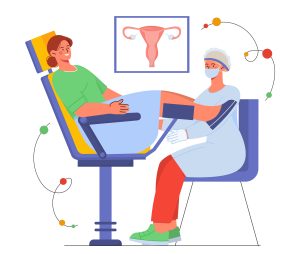
Conclusion:
HPV vaccination is a powerful tool in the fight against HPV-related cancers. By preventing infections with the most dangerous strains of HPV, the vaccine helps protect both men and women from a range of cancers, including cervical, anal, and throat cancers. It is safe, effective, and most beneficial when administered at a young age. Educating yourself and others about the importance of HPV vaccination can help reduce the burden of HPV-related diseases and save lives.
Whether you’re a parent considering the vaccine for your child, an adult looking to catch up on missed doses, or a healthcare provider advising patients, understanding the key facts about HPV vaccination is essential. Getting vaccinated not only protects you but also helps protect the community by reducing the spread of the virus.

